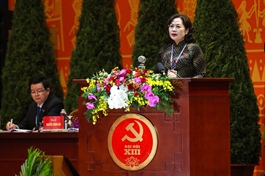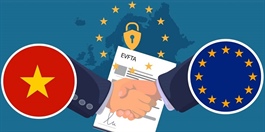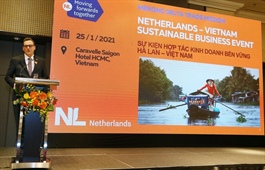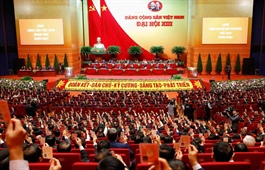Key for post-Brexit trade strategy
Key for post-Brexit trade strategy
The UK recently signed free trade agreements (FTAs) with Singapore and Vietnam, paving its way for expanded post-Brexit trade cooperation with other Southeast Asian countries. The agreement with Vietnam, which took effect on January 1, eliminates 99 percent of tariffs between the two countries.
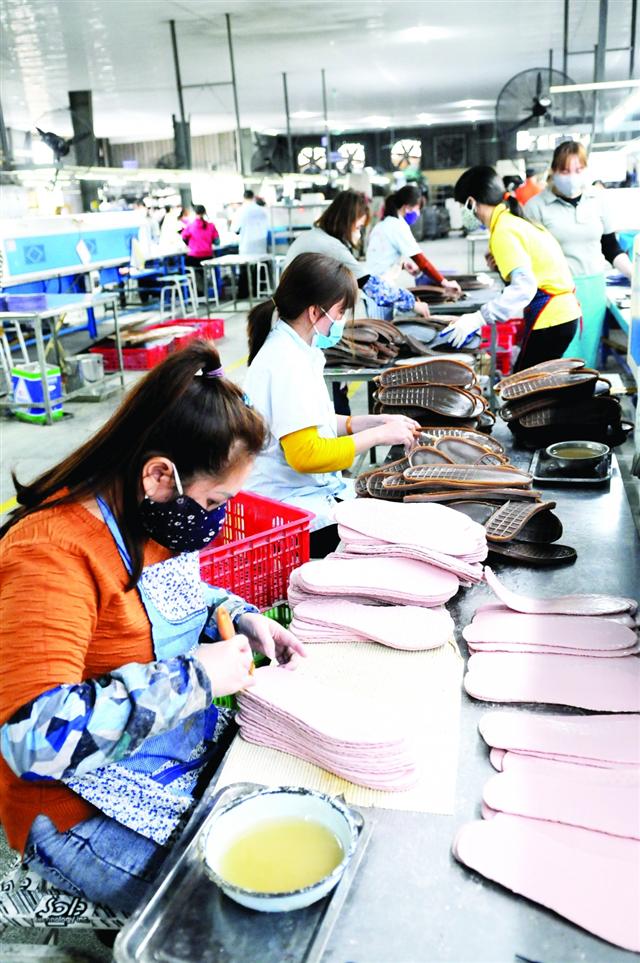
The UKVFTA will help Vietnam increase exports to the UK
|
An open Vietnam
The UK has been actively looking for new trading partners to prepare for its development after exiting from the European Union (EU). The dynamic Southeast Asian region with its significant economic potential is one of the UK’s major investment markets in its post-Brexit economic and trade development strategy.
The FTAs signed by the UK with Singapore and Vietnam not only help maintain trading activities worth billions of GBP but also serve as a prerequisite for the UK to sign other trade deals that will enable it to apply in the coming months to join the Comprehensive and Progressive Agreement for Trans-Pacific Partnership (CPTPP). Participation in the agreement will help the UK tighten its relations with Vietnam and 11 other dynamic economies in the Indian Ocean and the Pacific.
The UK’s trade agreement with Vietnam (UKVFTA) took effect on January 1, 2021, preventing an interruption of bilateral trade at the end of the Brexit transition period on December 31, 2020. “This FTA is of great significance in the context of ongoing complications of the Covid-19 pandemic in the UK, which heavily affect the socioeconomic life in this European nation,” said Pham Binh An, Deputy Director of the Ho Chi Minh City Institute for Development Studies.
Boosting trade and investment
Bilateral trade has tripled over the past decade. In 2019, trade between Vietnam and the UK reached US$6.6 billion. Despite the Covid-19 impact, bilateral trade reached US$5.55 billion in 2020, with Vietnam’s exports to the UK accounting for US$4.88 billion and imports for US$670 million. The UK currently is Vietnam’s third largest trading partner in Europe and ninth largest export market. Vietnam has maintained a trade surplus with the UK for years. By the time of full implementation, Vietnam stands to benefit from tariff savings of US$150 million on Vietnamese exports.
The UK has 400 investment projects in Vietnam with total registered capital of US$3.6 billion, ranking 16th among countries and territories investing in Vietnam. However, the UK’s investment in Vietnam remains incommensurate with its potential, especially given the fact that it invests about US$300 billion overseas annually. The UKVFTA is expected to yield more investment and cooperation opportunities for the two countries, helping them recover in the post-pandemic period.
Pham Ngoc Hung, Vice President of the Ho Chi Minh City Union of Business Associations, said that together with other FTAs, the UKVFTA will enable businesses, supply chains and consumers to benefit from tax reductions or exemptions on exports to the UK, such as clothing, fabrics and footwear - key export products of many cities and provinces in Vietnam’s southern region.
Commitments on tariffs for both the UK and Vietnam have, generally, remained the same as they were under the EU-Vietnam trade deal. This has meant that tariff preferences applied by the UK on imported goods from Vietnam remain the same, like those applied by the EU, and Vietnam has also committed to applying the same preferences to imported products from the UK that it applies to products from the EU.
Nguyen Huu Tin, Director of the Ho Chi Minh City Investment and Trade Promotion Center, said that for their part, businesses should intensify market research, innovate and develop products to meet the standards and tastes of British consumers.







